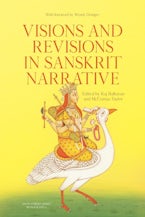- Home
- Chicago Studies in Practices of Meaning
- social science
- The Mana of Mass Society

The Mana of Mass Society
Series: Chicago Studies in Practices of Meaning
224 Pages
- Paperback
- ISBN: 9780226436258
- Published By: University of Chicago Press
- Published: October 2017
$25.00
William Mazzarella’s The Mana of Mass Society proposes a critical theory of culture—our culture—but also doubles as a history of the theorizing of culture. It does this by addressing a symptom of contemporary mass society with which we are all too familiar: despite the impersonality inherent to the mass publicity we know from, for example, politics and advertising, they are uncannily able to address us as if speaking solely to us, thus yielding “intimate anonymity” (90). For Mazzarella, achieving such a seemingly impossible result evokes the classical anthropological notion of magic. Indeed, early anthropologists had not only discussed such magic—which they conceptualized as a foil of modernity—but had also theorized it by recourse to mana, a supernatural power characterized, above all, by its ambiguity. Seeing in this ambiguity a means to challenge a dichotomous, static way of theorizing, Mazzarella turns to mana as his central concept. However, recycling mana requires looking at its history as an anthropological concept, which allows the author to point to the profoundly dialectical nature of mana instead of developing a sterile state of research. Mazzarella thus reconfigures the history of anthropology as a succession of three “settlements” by which the divide between modernity and its other was enforced. None of these has been fully successful in keeping magic out of our modern, supposedly rational, societies.
Some mana theorists began to address key elements for the theorizing of mass society. Reading Émile Durkheim’s views on collective effervescence among Australian Aborigenes, Mazzarella identifies the profoundly dialectical nature of Durkheim’s mana—which appears there as both immanent and transcendent—as constituted authority and constituting substance (65-66). Moreover, Durkheim was aware of the potential of mana for making sense of modernity, as he identifies the same sort of collective effervescence at play during the French revolution. Here were the makings of a dialectical theory of world-making (88). That Durkheim failed to develop such a theory is undoubtedly due to the rigid distinction between the primitive and civilized that his society prescribed (what Mazzarella calls the “primitive settlement”), but also has to do with his failure to seriously question the relationship between a clan and its specific totem. In Mazzarella’s framing of the issue, Durkheim did not address the question of the resonance between the Aboriginal subject and a particular object (here his totem), a central term in Mazzarella’s theory of culture.
Mazzarella then moves to an even nearer miss, that of Horkheimer and Adorno’s work on the culture industry. This time, it is characterized by the “aesthetic settlement” which acknowledged the presence of this ambivalent power (of magic) in modernity but relegated it to the domain of art, safely tucked away from politics or economics. Rejecting that settlement leads Mazzarella to extend to politics and publicity the systematic dialectical take on the relationship between subject and object granted by Adorno to art. Doing this allows Mazzarella to step outside of the dichotomous domination/resistance model of mass society, and put forward an alternative premised on the notion of resonant, constitutive encounters. Having thereby shown that there is indeed mana at the heart of modern society, the author can expound his theory of culture—or rather of “mimetic archive”—which hinges on the idea that we are at once the product of social and historical conditions as well as achieved through constitutive resonance, through relations of mutual becoming and not as a result of causal determination (138).
In addition to providing a critical theory of culture and a history of anthropology, The Mana of Mass Society also represents a useful plea in favor of anthropology. It not only proposes theoretical avenues but also shows how to give contemporary relevance to dusty and/or mystificatory concepts and theories. That is quite an achievement.
Nicolas Meylan is Lecturer in the HIstory of Religions at the Universities of Lausanne and Geneva.
Nicolas MeylanDate Of Review:February 4, 2019
William Mazzarella is the Neukom Family Professor of Anthropology and the Social Sciences at the University of Chicago.











